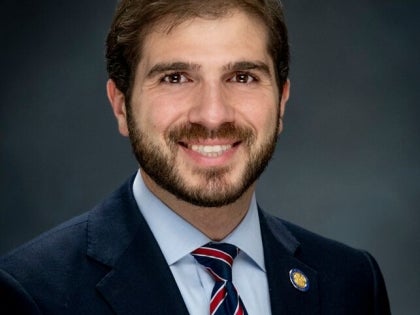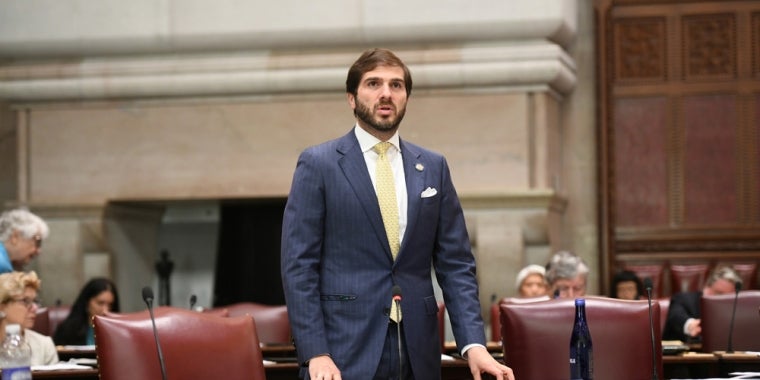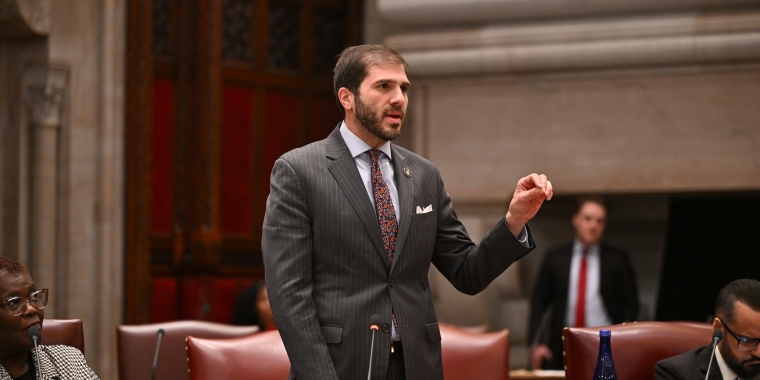
Nightmarish details of southern Brooklyn subway rides revealed in survey
Subway service is so lousy in southwest Brooklyn that at least one resident turned down an employment opportunity in Manhattan to avoid a nightmarish commute to work, an eye-opening survey has found.
“I actually decided not to take a job in Midtown because the commute is too inconsistent and risky,” one respondent wrote on a southern Brooklyn transit survey conducted by State Sen. Andrew Gounardes.
The survey, which Gounardes and his staff conducted between April and June, also found that frustrated riders adjust their work schedules to save themselves from transit headaches.
“And if I need to be somewhere after work near home (PTA meeting, parent teacher conference), I work from home because the possibility of major delays is so high,” a resident answered.
A shockingly high number of the respondents, 90 percent, said they are late getting to their destination because of bad transit service.
The survey, titled “Transit Report: The Ordeal of Southern Brooklyn Commuters,” was conducted via written questionnaires handed out at all of the subway stations throughout Gounardes’ Senate district as well as online.
Gounardes, a Democrat, represents Bay Ridge, Dyker Heights and parts of several other Southwest Brooklyn neighborhoods, including Bensonhurst, Gravesend, Gerritsen Beach and Marine Park. His district includes the D, N, R, B/Q and F subway lines.
Gounardes and his staff received a total of 769 responses to the survey. Of these, 63 percent were from Bay Ridge; 12 percent were from Dyker Heights; 20 percent hailed from the Bensonhurst-Bath Beach-Gravesend area; and four percent were from the Marine Park-Gerritsen Beach-Manhattan Beach area.
The vast majority of people answering the survey, 83 percent, said the subway was their primary mode of transportation. Approximately eight percent mainly ride buses to get around and another eight percent are express bus commuters. Only one percent of those surveyed use the ferry to commute to and from work.
Commuters complained of long trips: A whopping 35 percent said they spend over an hour traveling to their destination; 45 percent spend between 45 to 60 minutes; and 17 percent spend between 30 to 45 minutes. Only a lucky few, 3.5 percent, spend 30 minutes or less getting to and from work or school.
Transit troubles are highlighted throughout the report.
Twenty-one percent of the respondents said that they are always late to their destinations due to transit delays and another 69 percent said they are sometimes late. Only 10 percent of commuters said that they are rarely late.
R train riders had major complaints about subway lateness, with 92 percent of commuters reporting that they are always or sometimes late getting to their destination.
“My most frustrating experiences with the subway are during the long waits for the R train at 59th Street on late nights and weekends when I’m returning to Bay Ridge,” one person wrote.
Bus riders fared no better. Riders reported long, frustrating waits for buses.
“If a bus runs every 20 minutes and one is out of service the wait for a bus is over half an hour. I think I would go more places and certainly shop more frequently if bus service was more frequent and more reliable and I can’t be the only one. These days I frequently don’t go. The struggle is not worth it,” a bus rider wrote.
“My father is a senior citizen who takes the bus daily and must wait for a long time for the bus,” said another rider.
The idea behind the survey, according to Gounardes, was to learn the unique concerns and difficulties with public transportation in his district so that he could pinpoint his demands in dealing with the Metropolitan Transportation Authority.
“This report confirms what we know to be true: Southern Brooklynites deserve better public transportation,” Gounardes said. “Whether through long and indirect commutes or poor service, southern Brooklyn’s public transportation problems take a major toll on our neighborhoods. In addressing the many needs and issues of New York City’s transportation network, outer-borough communities must not be forgotten.”
Gounardes said he would work toward legislative solutions to force the MTA to work better.
His goals include continuing legislative oversight over the MTA’s budget and capital plan, pushing for passage of a bill he is sponsoring to give riders a vote on the MTA board and advocating for passage of legislation to require the MTA to make subway stations more accessible.
An MTA spokesperson told the New York Daily News that the agency is working “tirelessly” on service improvements, including upgrades on signals systems. The spokesperson also said that a project involving the renovation of a tunnel on the R and D train lines is a reason for service disruptions on those lines.


